-
 bitcoin
bitcoin $87959.907984 USD
1.34% -
 ethereum
ethereum $2920.497338 USD
3.04% -
 tether
tether $0.999775 USD
0.00% -
 xrp
xrp $2.237324 USD
8.12% -
 bnb
bnb $860.243768 USD
0.90% -
 solana
solana $138.089498 USD
5.43% -
 usd-coin
usd-coin $0.999807 USD
0.01% -
 tron
tron $0.272801 USD
-1.53% -
 dogecoin
dogecoin $0.150904 USD
2.96% -
 cardano
cardano $0.421635 USD
1.97% -
 hyperliquid
hyperliquid $32.152445 USD
2.23% -
 bitcoin-cash
bitcoin-cash $533.301069 USD
-1.94% -
 chainlink
chainlink $12.953417 USD
2.68% -
 unus-sed-leo
unus-sed-leo $9.535951 USD
0.73% -
 zcash
zcash $521.483386 USD
-2.87%
Advantages of decentralized mining pools
Decentralized mining pools enhance security, fairness, and profitability by eliminating central control, reducing fees, and ensuring transparent, trustless reward distribution.
Sep 20, 2025 at 04:36 pm
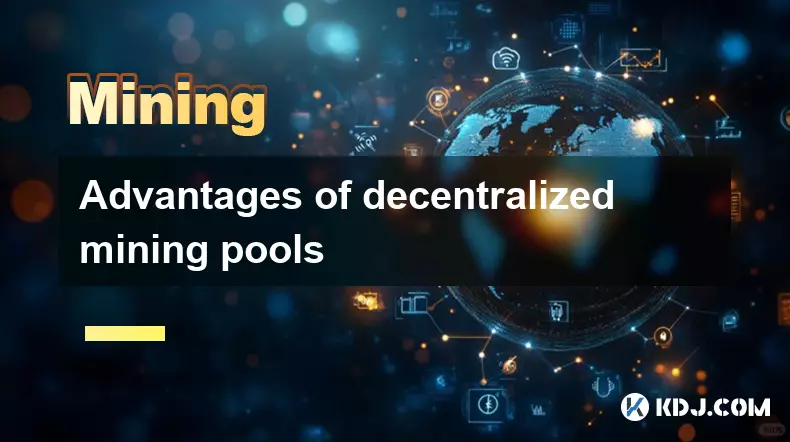
Enhanced Security and Resistance to Censorship
1. Decentralized mining pools operate on blockchain-based smart contracts, eliminating the need for a central authority to coordinate mining activities. This structure reduces the risk of single points of failure that are common in traditional pools.
2. Since no single entity controls the pool, it becomes significantly harder for malicious actors or governments to shut down operations or manipulate payouts.
3. Transactions and reward distributions are recorded transparently on-chain, making it nearly impossible to alter records without network consensus.
Miners retain full control over their private keys and hash power, drastically reducing exposure to theft or unauthorized access.Greater Miner Autonomy and Fair Reward Distribution
1. In decentralized pools, miners submit proof-of-work directly to the smart contract, which automatically verifies contributions and issues rewards based on verifiable shares.
2. The absence of a centralized operator ensures that all participants are treated equally, with payout mechanisms enforced by immutable code rather than discretionary decisions.
3. Miners can switch pools instantly without facing lock-in periods or withdrawal delays often imposed by centralized services.
Smart contract transparency allows every miner to audit the system in real time, ensuring trustless participation.Reduced Operational Costs and Elimination of Middlemen
1. Traditional mining pools charge maintenance fees ranging from 1% to 4%, which eat into miner profits. Decentralized alternatives typically operate with minimal fees due to automated execution.
2. Infrastructure costs are distributed across the network, leveraging existing blockchain nodes instead of requiring expensive dedicated servers.
3. Developers and operators cannot arbitrarily increase fees or change terms without community approval through governance protocols.
By removing intermediaries, more revenue flows directly to miners, improving overall profitability per unit of computational power.Improved Network Decentralization and Anti-Centralization Effects
1. Centralized mining pools have led to dangerous concentrations of hash power, with a few entities controlling large portions of networks like Bitcoin and Ethereum.
2. Decentralized pools inherently resist such consolidation by design, distributing coordination logic across multiple nodes and preventing any single group from gaining disproportionate influence.
3. Widespread adoption of decentralized pooling could mitigate the risks associated with 51% attacks, as no single coordinator could direct pooled resources toward malicious ends.
The proliferation of permissionless, open-source mining coordination strengthens the foundational principle of blockchain immutability.Frequently Asked Questions
What prevents a decentralized mining pool from being dominated by large miners?Decentralized pools use algorithmic share tracking and anti-sybil mechanisms to limit the impact of oversized contributors. Some implement identity verification or reputation systems to ensure fair participation.
How do decentralized pools handle network latency and stale shares?They utilize optimized peer-to-peer propagation techniques and lightweight validation layers to minimize delays. Certain protocols introduce time-bounded submission windows to reduce orphaned blocks.
Are decentralized mining pools compatible with all cryptocurrencies?Compatibility depends on the coin’s support for smart contracts and on-chain verification of work. Coins built on platforms like Ethereum, Cardano, or Polkadot are more conducive to integration.
Can miners participate in a decentralized pool using consumer-grade hardware?Yes, though profitability depends on the network difficulty and electricity costs. The barrier to entry is lower since there’s no need to trust a third party with funds or computational output.
Disclaimer:info@kdj.com
The information provided is not trading advice. kdj.com does not assume any responsibility for any investments made based on the information provided in this article. Cryptocurrencies are highly volatile and it is highly recommended that you invest with caution after thorough research!
If you believe that the content used on this website infringes your copyright, please contact us immediately (info@kdj.com) and we will delete it promptly.
- Beyond the Forecast: Is Carol Kirkwood's Departure a Whisper of BBC's Lingering 'Token Woman' Problem?
- 2026-02-01 16:25:01
- Bitcoin Plunges Amidst Liquidity Worries: A Record Low for Crypto Sentiment?
- 2026-02-01 16:25:01
- Pi Network's Mainnet: A Crypto Milestone Unveils a Complex Market Picture
- 2026-02-01 16:20:02
- Top Watch: Emerging Cryptocurrencies Charting New Territories in 2026
- 2026-02-01 16:15:01
- Wall Street Whales, DeFi Dynamos, and the Cross-Asset Surge: Decoding BTC, ETH, and Hyperliquid's Latest Plays
- 2026-02-01 13:00:02
- Dogecoin's Identity Crisis: From Meme Darling to Digital Identity Quandary
- 2026-02-01 16:15:01
Related knowledge

How to Earn Passive Income with DePIN Mining? (New Trend 2026)
Feb 01,2026 at 12:40pm
Understanding DePIN Mining Mechanics1. DePIN mining relies on real-world infrastructure participation rather than computational hashing. Users deploy ...
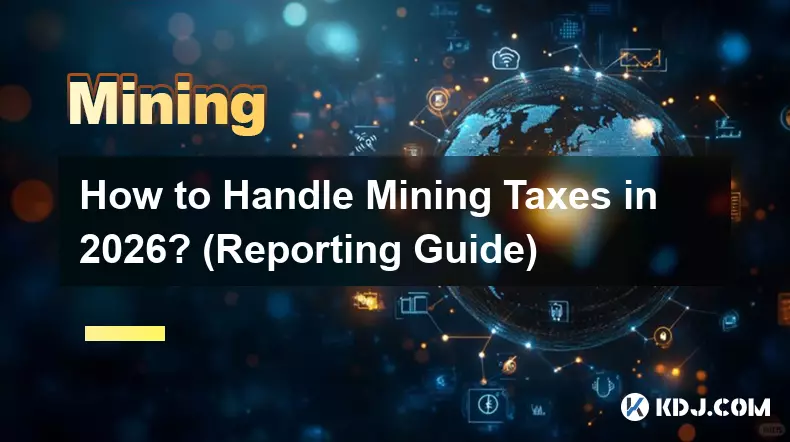
How to Handle Mining Taxes in 2026? (Reporting Guide)
Feb 01,2026 at 01:39am
Tax Classification of Mining Rewards1. Cryptocurrency mining rewards are treated as ordinary income at the fair market value on the date of receipt. 2...
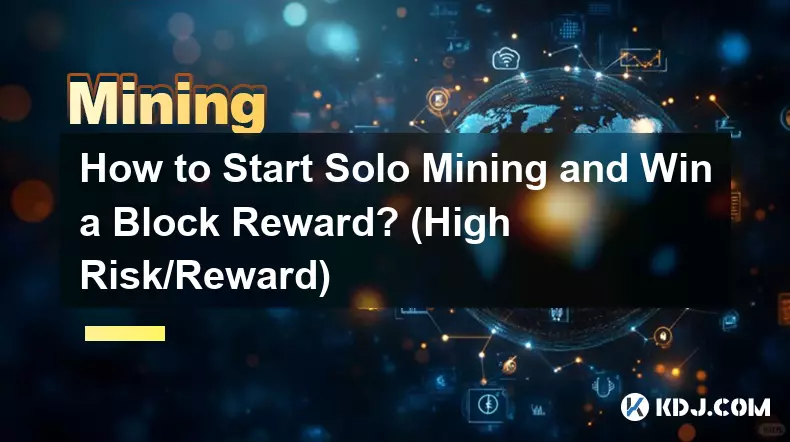
How to Start Solo Mining and Win a Block Reward? (High Risk/Reward)
Feb 01,2026 at 06:40am
Understanding Solo Mining Mechanics1. Solo mining means operating a full node and attempting to solve cryptographic puzzles independently without join...
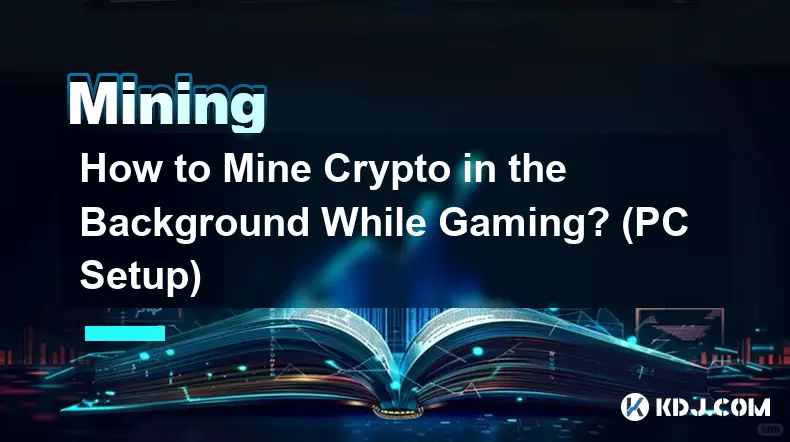
How to Mine Crypto in the Background While Gaming? (PC Setup)
Feb 01,2026 at 01:20pm
Optimizing GPU Utilization During Gaming Sessions1. Modern gaming GPUs often idle certain shader units or memory bandwidth during less demanding scene...
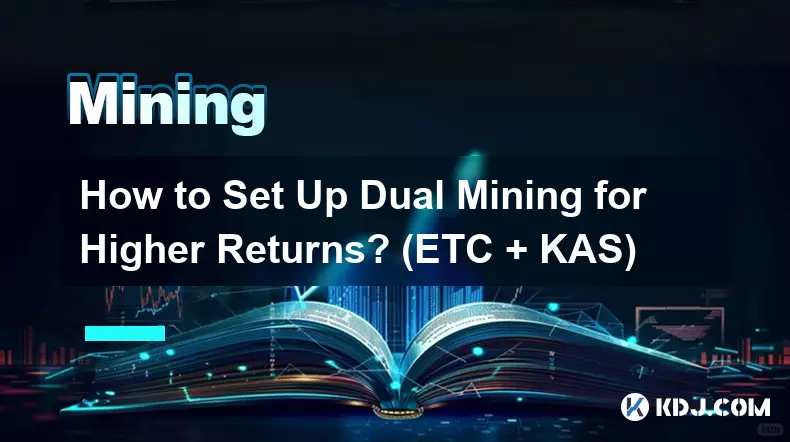
How to Set Up Dual Mining for Higher Returns? (ETC + KAS)
Feb 01,2026 at 02:19am
Dual Mining Fundamentals1. Dual mining allows a single GPU to simultaneously contribute computational power to two different blockchains using compati...
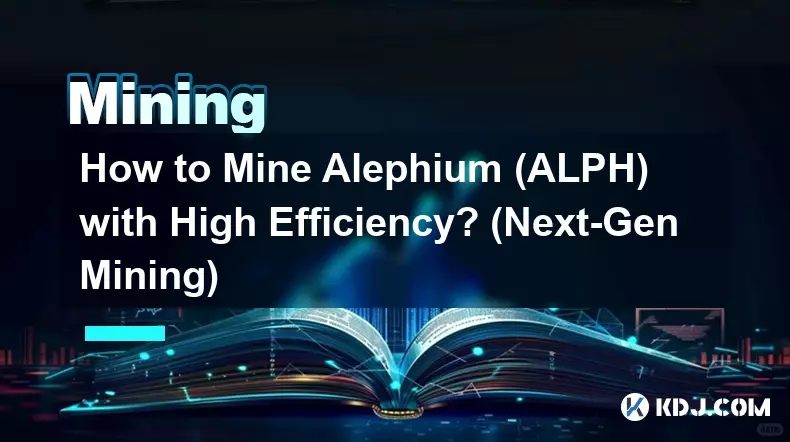
How to Mine Alephium (ALPH) with High Efficiency? (Next-Gen Mining)
Feb 01,2026 at 05:39am
Understanding Alephium's Unique Consensus Mechanism1. Alephium employs a sharded Proof-of-Work (PoW) consensus called BlockDAG with Recursive Sharding...

How to Earn Passive Income with DePIN Mining? (New Trend 2026)
Feb 01,2026 at 12:40pm
Understanding DePIN Mining Mechanics1. DePIN mining relies on real-world infrastructure participation rather than computational hashing. Users deploy ...

How to Handle Mining Taxes in 2026? (Reporting Guide)
Feb 01,2026 at 01:39am
Tax Classification of Mining Rewards1. Cryptocurrency mining rewards are treated as ordinary income at the fair market value on the date of receipt. 2...

How to Start Solo Mining and Win a Block Reward? (High Risk/Reward)
Feb 01,2026 at 06:40am
Understanding Solo Mining Mechanics1. Solo mining means operating a full node and attempting to solve cryptographic puzzles independently without join...

How to Mine Crypto in the Background While Gaming? (PC Setup)
Feb 01,2026 at 01:20pm
Optimizing GPU Utilization During Gaming Sessions1. Modern gaming GPUs often idle certain shader units or memory bandwidth during less demanding scene...

How to Set Up Dual Mining for Higher Returns? (ETC + KAS)
Feb 01,2026 at 02:19am
Dual Mining Fundamentals1. Dual mining allows a single GPU to simultaneously contribute computational power to two different blockchains using compati...

How to Mine Alephium (ALPH) with High Efficiency? (Next-Gen Mining)
Feb 01,2026 at 05:39am
Understanding Alephium's Unique Consensus Mechanism1. Alephium employs a sharded Proof-of-Work (PoW) consensus called BlockDAG with Recursive Sharding...
See all articles
























![[Audio stories] Streamer Became a Billionaire Overnight After Buying One Junk Coin [Audio stories] Streamer Became a Billionaire Overnight After Buying One Junk Coin](/uploads/2026/02/01/cryptocurrencies-news/videos/origin_697eaa9a495ed_image_500_375.webp)

















































